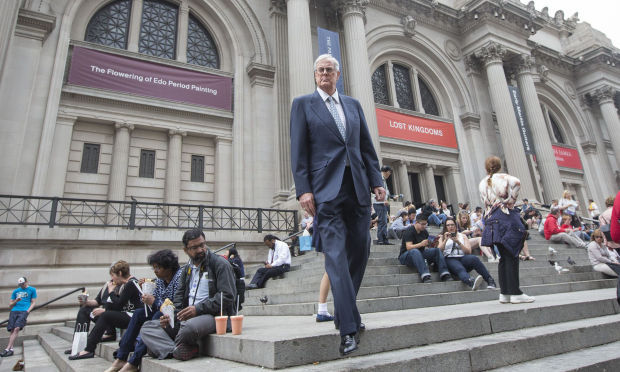Legislators call them “freedom centers.”
That’s as much information as you need to understand why Republican lawmakers plan an unusual $5 million in earmarks for these institutes at the University of Arizona and Arizona State.
If freedom is in the name, they’re for it — better yet if it’s at those Marxist universities.
The plan is to put $2 million in state tax money toward the Center for the Philosophy of Freedom at the UA and $3 million to the School of Civic and Economic Thought and Leadership, a new combination of two ASU centers including the Center for the Study of Economic Liberty.
The universities aren’t objecting — why would they? But the plan is full of contradictions, some of them funny, some of them infuriating.
Start with the glaring fact that this is the same Legislature that last year cut $99 million in funding to the state’s three universities. Even before those cuts, since the recession began in 2008, Arizona had reduced its funding for higher education more than any other state. We were 50th, the Center on Budget and Policy Priorities reported last May — so far behind the other states that we’re just lucky there was no 51st place.
But despite all the lawmakers’ persistent talk of needing to make cuts for a “structurally balanced” budget, lawmakers are able to scrape together a few million for something called “freedom.” In fact, they’re even making an unusual legislative appropriation to these obscure programs deep within the organizational charts of the universities.
Lynn Nadel, the faculty president at the UA, told me that’s the main complaint he’s heard — the specificity of this funding.
“I’ve had some input from faculty about the Legislature determining the funding of universities at this level of granularity,” he said.
Usually they let the regents and universities figure that out. But for freedom, no.
Another contradiction: This Legislature, with its preference for practical, career-oriented education instead of liberal arts, is putting extra money into a program in philosophy, of all things. Then-Rep. John Kavanagh, a Fountain Hills Republican, infamously spelled out this widespread point of view in 2014.
“If somebody’s going to end up in a sales position or someone’s going to be a real estate agent, why are we investing all this money in a research university degree?” he said. “What’s the purpose of it?”
And yet now, here they are, putting extra taxpayer money into a center whose faculty produce research papers such as “The Problem of Determinism and Free Will is not the Problem of Determinism and Free Will.”
This quotation from a graduate fellow, highlighted as a pull quote in a brochure by the UA’s freedom center, also jumped out at me: “If we take our philosophical theories to be telling us anything about our commonsense views, then we ought to take ethics seriously in theorizing about metaphysics.”
Abstract as its work may seem, the UA’s center is respected by its peers and known for its scholarly depth. Don’t tell the Legislature this, but I watched a couple of videos featuring David Schmidtz, the UA center’s director. In a lecture he cited Marx and in an interview, a book called “Marxism” sat prominently on the shelf behind him.
The output is not so abstract and academic at ASU’s Center for the Study of Economic Liberty. There, the focus seems to be on giving think-tank-style backing for the supply-side preferences of the dominant strand of Republicanism in Phoenix.
It’s not just that founding director William Boyes wants to eliminate “government schools” — what you and I call public schools — and replace them with private education. Take a look at the other three areas of research highlighted on the center’s web page — all bolster the views of the legislative majority and Gov. Doug Ducey.
• One argues that more money should be taken from the state’s land trust to pay for education without tax increases — supporting Prop. 123
• Another argues that we shouldn’t raise any more taxes on the rich and we instead should eliminate the income tax to improve the state’s economy.
• The last argues against the common libertarian position in favor of open borders and says that instead we should enforce borders to protect private property.
So while it’s amusing, perhaps, that the Legislature would fund a center for pointy-headed intellectuals at the UA, the money for ASU will likely go directly into making cases to bolster the legislative majority’s point of view.
This brings us to another contradiction in the appropriation: Giving tax money to centers that are part of a network of academic institutes and think tanks founded by billionaires to advance their interests — largely by advocating for lower taxes.
It happens that just before this appropriation came to light, I read Jane Mayer’s recent book, ”Dark Money: The Hidden History of the Billionaires behind the Rise of the Radical Right.” In it, she explains how in the 1980s, a lieutenant to Charles and David Koch named Richard Fink created a plan for advancing the brothers’ ideas and interests.
The first phase was to invest in intellectuals whose ideas would serve as a raw product that, in the second phase, think tanks would turn into marketable policies. The third phase was to use citizens’ — think Americans for Prosperity — and other special-interest organizations to push those policies.
The story of the Center for the Philosophy of Freedom parallels that of the Mercatus Center at George Mason University in Virginia and other such institutes across the country. In this case, it was Paradise Valley attorney Randy Kendrick, the wife of Arizona Diamondbacks owner Ken Kendrick, who took an interest in Schmidtz’s work and pledged the $1.5 million to get the center going.
A handful of wealthy people or their foundations kicked in additional millions: The Templeton Foundation; the Charles Koch Foundation; the Thomas W. Smith Foundation and others.
In other words, this is a center that exists because wealthy donors want it to exist, arguably providing intellectual raw material that will turn into policies that benefit wealthy people. It has access to bottomless fortunes. And yet it, of all the UA’s needy programs, is given a couple million in taxpayer dollars.
Contradictions abound with this appropriation. I choose to find them amusing, but I understand if you’re infuriated enough that you can’t laugh.
Just remember: It’s all about “freedom.”





